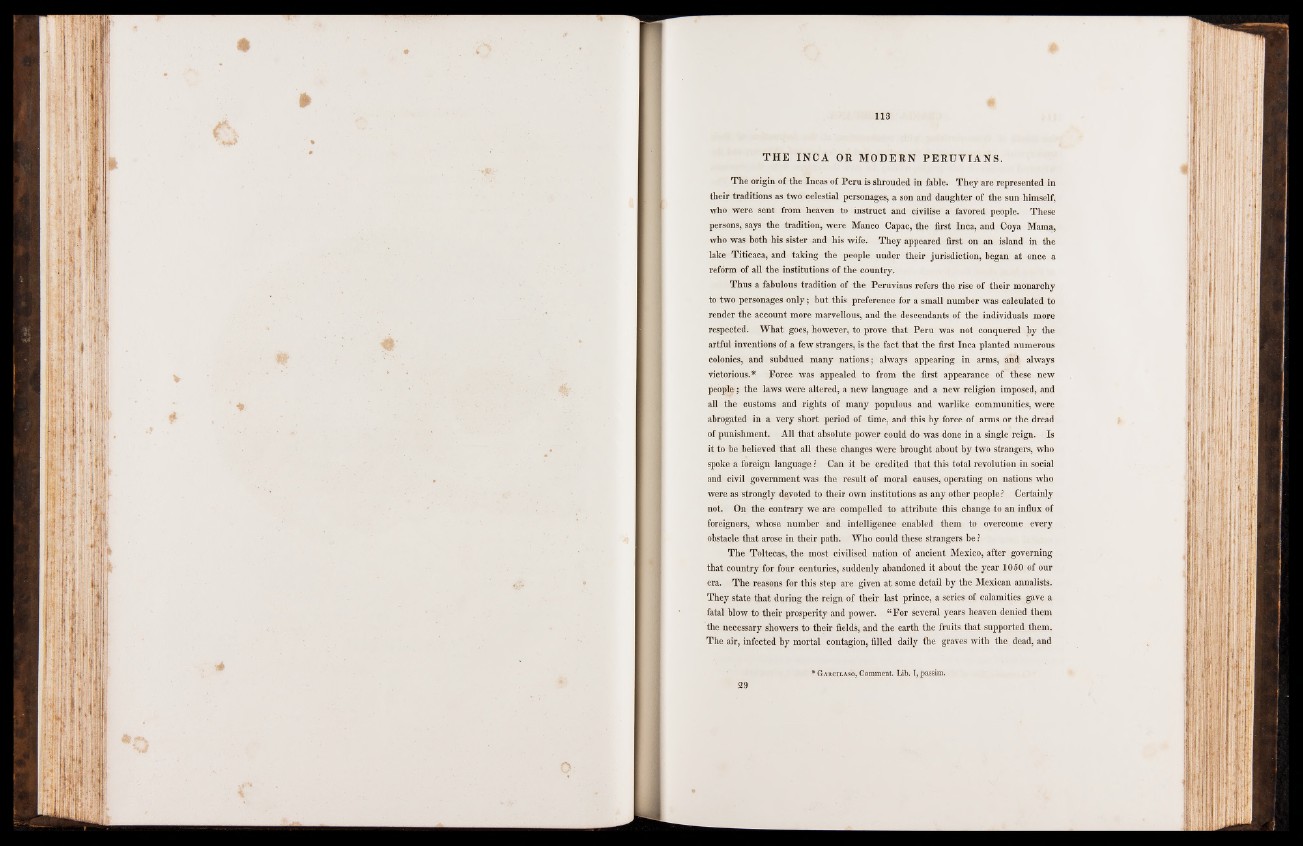
T H E INCA OR MOD E RN P E RUVIANS .
The origin of the Incas of Peru is shrouded in fable. They are represented in
their traditions as two celestial personages, a son and daughter of the sun himself,
who were sent from heaven to instruct and civilise a favored people. These
persons, says the tradition, were Manco Capac, the first Inca, and Coya Mama,
who was both his sister and his wife. They appeared first on an island in the
lake Titicaca, and taking the people under their jurisdiction, began at once a
reform of all the institutions of the country.
Thus a fabulous tradition of the Peruvians refers the rise of their monarchy
to two personages only; but this preference for a small number was calculated to
render the account more marvellous, and the descendants of the individuals more
respected. What goes, however, to prove that Peru was not conquered by the
artful inventions of a few strangers, is the fact that the first Inca planted numerous
colonies, and subdued many nations; always appearing in arms, and always
victorious.* Force was appealed to from the first appearance of these new
people; the laws were altered, a new language and a new religion imposed, and
all the customs and rights of many populous and warlike communities, were
abrogated in a very short period of time, and this by force of arms or the dread
of punishment. All that absolute power could do was done in a single reign. Is
it to he believed that all these changes were brought about by two strangers, who
spoke a foreign language ? Can it he credited that this total revolution in social
and civil government was the result of moral causes* operating on nations who
were as strongly devoted to their own institutions as any other people ? Certainly
not. On the contrary we are compelled to attribute this change to an influx of
foreigners, whose number and intelligence enabled them to overcome every
obstacle that arose in their path. Who could these strangers be ?
The Toltecas, the most civilised nation of ancient Mexico, after governing
that country for four centuries, suddenly abandoned it about the year 1050 of our
era. The reasons for this step are given at some detail by the Mexican annalists.
They state that during the reign of their last prince, a series of calamities gave a
fatal blow to their prosperity and power. “For several years heaven denied them
the necessary showers to their fields, and the earth the fruits that supported them.
The air, infected by mortal contagion, filled daily fhe graves with the dead, and
* Garcilaso, Comment. Lib. I, passim.